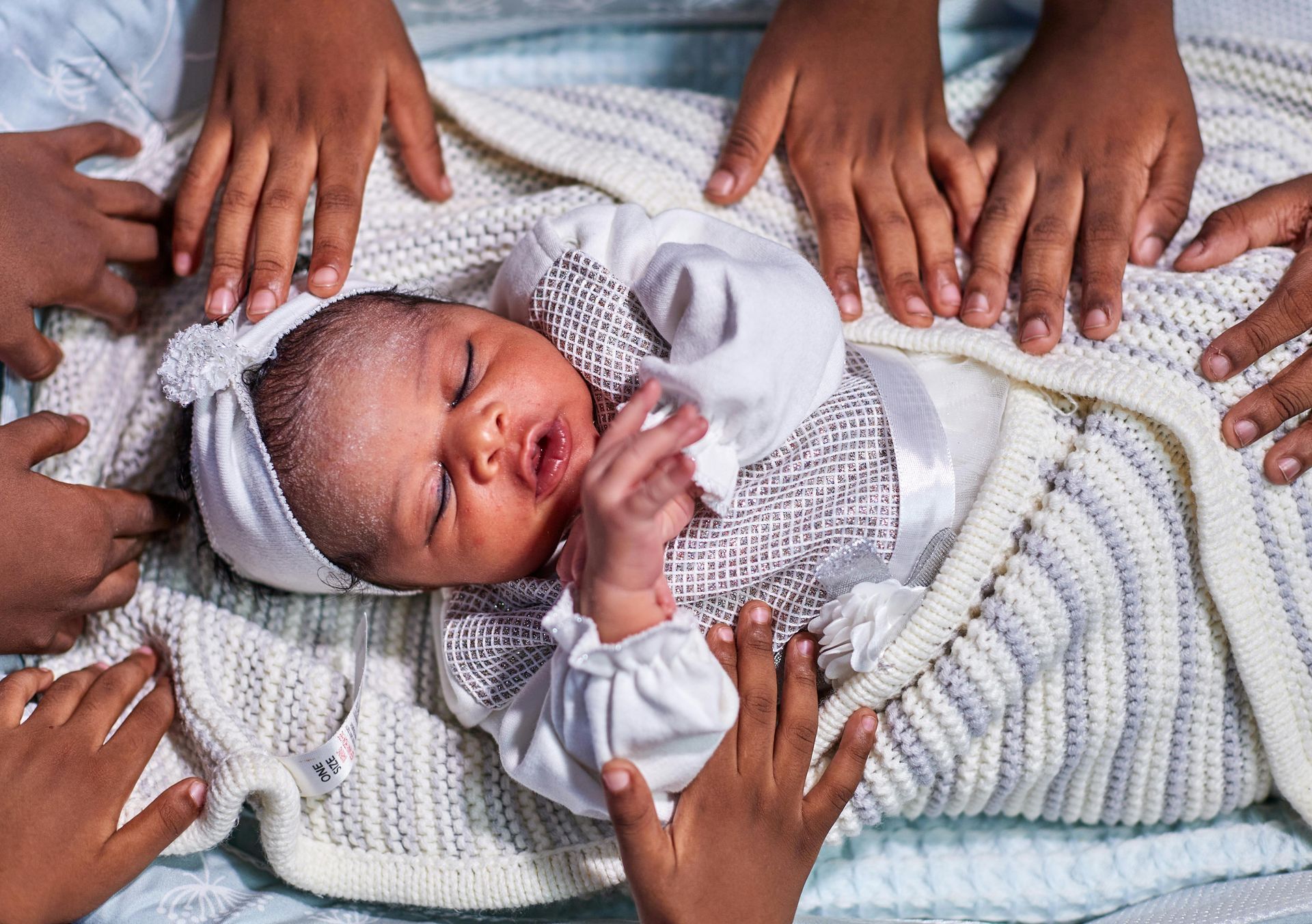Beyfortus (nirsevimab): Respiratory Syncitial Virus (RSV) Anti- body Injection for babies
If a mother does not receive the RSV vaccine Abrysvo during her pregnancy, Nirsevimab is an option for protecting her infant against RSV infection during the RSV season. Nirsevimab, marketed as Beyfortus, is a monoclonal antibody that provides passive immunity against Respiratory Syncytial Virus (RSV). Unlike a vaccine, Nirsevimab delivers laboratory-made antibodies specifically targeting RSV, offering temporary protection for approximately four to six months. Since it is not a vaccine and instead an antibody injection, Nirsevimab does not provide lifelong protection against RSV.
The ideal timing for this injection is just before the commencement of RSV season which in Arkansas is from October through March. Beyfortus is designed to be given to all newborns under the age of eight months during their first RSV season. On their 8th month birthday, they are ineligible to receive Beyfortus.
Infants and children under 24 months of age who have an increased risk for severe RSV disease are recommended to receive Beyfortus at the start of their second RSV season, in addition to receiving it during their first sea- son.
This second RSV season Beyfortus recommendation includes:
-Children with chronic lung disease of prematurity who required medical support (chronic corticosteroid therapy, diuretic therapy, or supplemental oxygen) any time during the 6-month period before the start of the second RSV season.
-Severely immuno-compromised children.
-Children with cystic fibrosis who have either:
- manifestations of severe lung disease (previous hospitalization for pulmonary exacerbation in the first year of life or abnormalities on chest imaging that persist when stable).
- weight-for-length <10th percentile.
-American Indian or Alaska Native children for whom RSV is more severe.
Beyfortus is generally well-tolerated by infants. Common side effects are mild and may include injection site reactions such as redness or swelling, mild fever or irritability. These effects are usually not severe and re- solve on their own. However, it is always important to monitor your child after any injection and consult us if you notice any concerning symptoms.
Prior to the availability of Beyfortus, the only drug available to help prevent RSV infection in babies was an antibody injection called Synagis (palivizumab). Synagis has a long history of safe use, having been employed for over 20 years in protecting high-risk infants—such as those born prematurely or with certain heart or lung conditions—against severe RSV infection. Unlike Beyfortus,
Synagis required monthly injections throughout the RSV season, typically amounting to five doses over the season —and each shot could cost more than $1,000. Because of the price and logistics of delivery, the drug was available only for children with certain underlying medical conditions that put them at high risk of getting seriously ill from RSV.
Both Synagis and Beyfortus have been shown to effectively reduce RSV-related hospitalizations. However, Beyfortus offers significant advancements in RSV prevention for infants. It provides full-season protection with just a single injection and is available at a fraction of the cost. Additionally, it is recommended for all children. This approach not only simplifies administration but also saves money and ensures broader protection compared to Synagis, which requires multiple doses and is limited to protecting fewer children.
Parents are encouraged to choose between receiving the RSV vaccine, Abrysvo, during pregnancy or administering nirsevimab (Beyfortus) to the baby after birth. Both options help protect infants from RSV. The vaccine induces maternal antibodies during pregnancy, while nirsevimab directly provides antibodies to the baby after birth. Factors to consider in making the choice include:
- The RSV vaccine Abrysvo for pregnant mothers confers immediate protection to the baby following birth, but involves the mother getting the vaccine at the right time.
- Opting for the maternal RSV vaccine means one less injection for the baby after they are born.
- Nirsevimab (Beyfortus) may offer more prolonged protection for the baby and is one less vaccine for a pregnant woman.
Which decision you make for RSV protection in the baby doesn’t matter as long as one of those methods is chosen.


